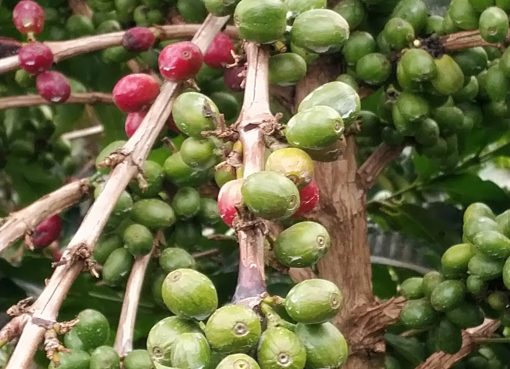Farmers in Kisii County are facing declining crop yields due to the use of counterfeit and improperly stored fertilisers, a growing concern that threatens agricultural productivity in the region.
In response, Kisii County’s Director of Agriculture, Nathan Soire, has taken a firm stand against the sale and use of fake fertilisers, launching an awareness campaign to educate farmers and agro-dealers on proper handling, storage, and purchasing practices to safeguard crop yields.
Speaking to farmers and traders on Saturday, Soire highlighted that improper storage and handling of fertilisers significantly reduce their effectiveness.
He pointed out that many fertilisers on the market lose essential nutrients due to repackaging and prolonged exposure to air, sunlight, and moisture.
“Fertilisers are often transferred from large sacks into smaller portions for resale. Once opened, they lose critical minerals, especially nitrogen, making them less effective in promoting plant growth,” Soire explained.
He noted that this deterioration, coupled with the rise of counterfeit fertilisers in the market, has contributed to stunted crop development, reduced yields, and an increase in plant diseases across the county.
To combat the issue, Soire has been training farmers and agro-dealers on the correct storage and handling of fertilisers to ensure they retain their quality and effectiveness.
He stressed that fertilisers should never be stored directly on the ground, as moisture absorption can weaken their potency.
“Fertilisers should be placed on wooden platforms to allow air circulation and prevent contamination. Exposure to excessive heat and air also depletes their essential nutrients,” he advised.
Additionally, Soire cautioned farmers against buying fertilisers from unverified sources, urging them to purchase only from licensed agrovet shops that have been approved by agricultural authorities.
“Farmers should always buy fertilisers in their original, sealed packaging with clear labels indicating the product’s name, nutrient composition, manufacturing date, expiry date, and manufacturer details,” he emphasised.
Many farmers and agro-dealers welcomed the initiative, acknowledging that they had previously unknowingly purchased fake or degraded fertilisers, which negatively impacted their crop production.
“I now realise I have been using poor-quality fertilisers without knowing. This training has opened my eyes, and I will be more careful in the future,” said Rachael Nyaboke, a trader at Daraja Mbili market.
Soire concluded by warning that selling or using repackaged or unsealed fertilisers compromises their quality and effectiveness. He urged farmers to adopt proper handling practices and remain vigilant when purchasing fertilisers to enhance agricultural productivity in Kisii County.
By Ndevani Goretty and Verah Moraa




